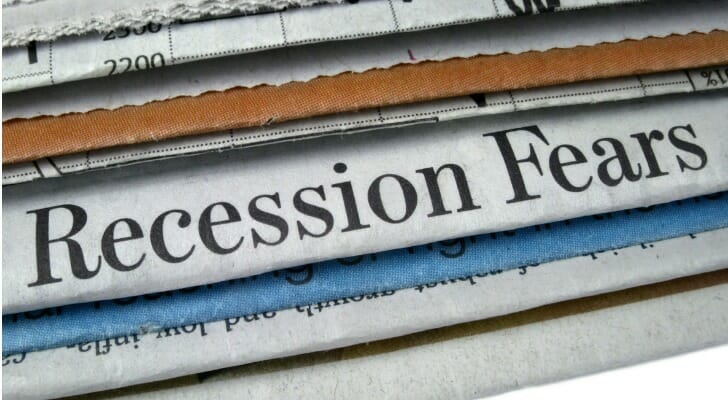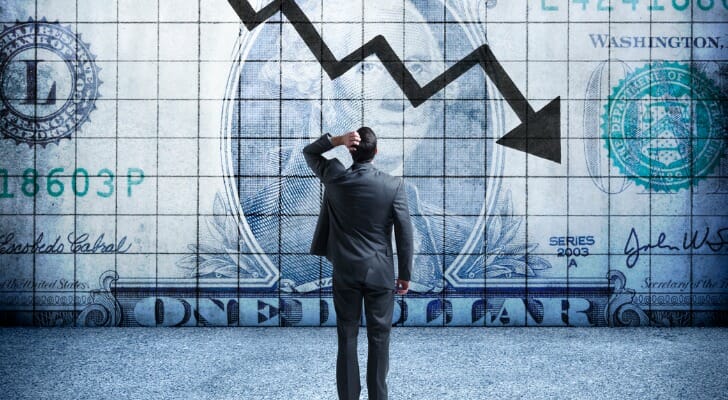Corrections vs. Recessions vs. Depressions
Don’t panic. At time of writing in March 2020, the stock market has posted some of its biggest losses and gains since the Great Recession. It’s been a roller coaster: One day stocks posted their biggest one-day loss...Thursday, March 12th 2020, 11:01 am
By Eric Reed
At time of writing in March 2020, the stock market has posted some of its biggest losses and gains since the Great Recession. It’s been a roller coaster: One day stocks posted their biggest one-day loss since 2008, followed the next day by prices rallying by 5%, followed the next day by another big dive. It has led some people to worry about an imminent recession. But we’re not quite there. As of this writing the market is in what it calls a “correction,” when prices fall significantly in a short period of time. This is far from a recession, defined as several consecutive months when the economy shrinks rather than grows. It is even further from a depression, which is a severe recession marked by more sustained or significant losses.
What Is A Correction?“Correction” describes when an asset or industry loses a significant amount of value. Market corrections occur when that loss is felt over an entire market (such as the New York Stock Exchange or NASDAQ) or index (such as the Dow Jones Industrial Average or the S&P 500).
There is no formal definition for a market correction. However, the common rule of thumb is that a correction has occurred when the value of a key benchmark stock index, such as the S&P 500, falls by 10% or more. While there is also no set rule about the time period for a correction, analysts also generally consider them short-term events.
This is called a correction because prices are “correcting” to more accurately reflect the true value of the underlying assets. In an efficient market this should periodically happen; just as prices will rise through enthusiasm, they will also correct downward through accurate valuation.
A bear market is a more severe form of correction. Traders generally consider it a bear market when prices fall by 20% or more. Again, this can either occur within a specific asset, an industry or market-wide. At the time of this writing, the Dow Jones and S&P 500 had just dipped into bear market territory.
What Is A Recession? Recessions occur when economies suffer sustained losses. There is no formal definition for a recession, but analysts generally use two rules of thumb.
Recessions occur when economies suffer sustained losses. There is no formal definition for a recession, but analysts generally use two rules of thumb.
The first, classic, definition of a recession is when an economy’s inflation-adjusted GDP has declined for two quarters or more. (It’s important to adjust for inflation in this measure – otherwise, rising prices could create an artificial impression of prosperity.) Analysts and journalists often use on this definition for its clarity.
Economists, however, tend to rely on a more ambiguous definition. Per the San Francisco Federal Reserve, citing the National Bureau of Economic Research:
A recession is a significant decline in economic activity spread across the economy, lasting more than a few months, normally visible in real GDP, real income, employment, industrial production, and wholesale-retail sales. A recession begins just after the economy reaches a peak of activity and ends as the economy reaches its trough.
For economists a recession occurs when the economy contracts in general, based on a variety of factors, and ends when it returns to growth.
It’s important to note that recessions are not measured by performance of the stock market. This is because the stock market is only one aspect of the economy. It measures investment of, access to, and performance by capital. In other words, how easily can businesses get investment, and how do those investors fare?
While an important aspect of the economy, this is far from the only essential metric. Factors such as job growth, wages, the quit rate (how often workers voluntarily leave their jobs, an important metric of worker confidence), and GDP (the value of all goods and services produced across the economy) are also critical measures.
In fact, most economists argue that in recent decades the stock market has become an increasingly weak measure of overall economic performance, as its gains and losses have correlated poorly with overall prosperity among consumers.
What Is A Depression?Depressions occur when a recession lasts for longer than usual and is particularly severe. There is no formal or even standard definition for a depression, in part because they are rare events. Corrections occur regularly, and even recessions happen fairly often. Most Americans view the depression of the 1930s as the nation’s only one, but many economists say there have been others, including several in the 19th century.
Arguably the most important job of economists and analysts is to prevent another depression.
The Federal Reserve offers the following rule of thumb for a recession:
There are repeated periods during which real GDP falls, the most dramatic instance being the early 1930s. Such periods are called recessions if they are mild and depressions if they are more severe.
While recessions and corrections are formal market events, depressions are closer to a social description. In technical terms, a depression is more accurately a sustained recession. In practice it describes a downturn that becomes particularly difficult to recover from, or one in which the normal business cycle (in which a correction periodically leads to a recession, which then leads to undervalued assets being bought up, leading to a returned period of growth) seems to stop working.
Why Is Everyone Worried Now?At time of writing in March 2020, analysts are concerned about a recession for two reasons.
The first is that a recession has seemed imminent for some time. Recessions happen, on average, every seven to nine years, and the U.S. economy has enjoyed 11 years of sustained growth. What’s more, data points have periodically caused concern about a potential recession. Events such as the yield curve inversion, rising oil prices and increased investment in utilities typically are strong indicators that investors are bracing for a recession. All of these have happened at one point or another over the past three years.
It’s less that economists worry about another recession, and more that many are not sure why one hasn’t happened yet. Coronavirus could be the event that tips the economy into a decline that, for many analysts, is overdue.
The Bottom LineDuring a correction, prices fall significantly across a single asset, industry or an entire market. A recession occurs when an entire economy contracts for several months. If the recession persists and is particularly severe, it may eventually be considered a depression.
Tips for Investors- A financial advisor can help you prepare for the ups and downs of the economy. Finding the right financial advisor who fits your needs doesn’t have to be hard. SmartAsset’s free tool matches you with financial advisors in your area in five minutes. If you’re ready to be matched with local advisors who will help you achieve your financial goals, get started now.
- With the markets going through an unusually volatile spell, you may benefit from using SmartAsset’s investment calculator. Among other benefits, this tool will give you an idea of how your investments will do based on how much you invest.
Photo credit: ©iStock.com/DNY59, ©iStock.com/Photographer, Filmmaker, Designer, ©iStock.com/NoSystem images
The post Corrections vs. Recessions vs. Depressions appeared first on SmartAsset Blog.
Information contained on this page is provided by an independent third-party content provider. Frankly and this Site make no warranties or representations in connection therewith. If you are affiliated with this page and would like it removed please contact pressreleases@franklymedia.com
More Like This
March 12th, 2020
April 5th, 2025
April 5th, 2025
Top Headlines
April 5th, 2025
April 5th, 2025
April 5th, 2025







